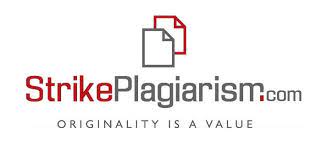FORMATION OF FUNCTIONAL LITERACY OF FUTURE COMPUTER SCIENCE TEACHERS
DOI:
https://doi.org/10.56122/..v2i2.450Keywords:
functional literacy; programming; mathematical and logical thinking; creativity; digital literacy; computer science education; PISA assessment; critical thinking; project-based learning.Abstract
In the 21st century, one of the main goals of the education system is to prepare specialists who possess functional literacy, creative thinking, and the ability to adapt to the conditions of the digital society. The article analyzes the theoretical foundations of functional literacy and its significance in the educational process. Based on international (PISA) and national studies, the paper examines the main areas of functional literacy: reading, mathematical, scientific, financial, and digital. Particular attention is paid to the problem of developing functional literacy among future computer science teachers. The author highlights the role of such approaches as solving real-life problems through programming, project-based activities, the development of algorithmic thinking, digital literacy, and social skills. The article presents a practical task on calculating a family budget using the Python programming language, which demonstrates its effectiveness in fostering students’ financial, digital, and critical thinking skills. The study concludes that the development of functional literacy contributes to the modernization of educational content, ensures its practical orientation, and prepares students for the socio-economic challenges of the 21st century.
References
Липова Н.И. Общая функциональная грамотность. Виды функциональной грамотности. Научно-методические и практические аспекты интеграционных процессов в науке и технике. Ижевск, 25 октября 2022 года
OECD. PISA 2022 Assessment and Analytical Framework: Mathematics, Reading, Science, Financial Literacy and Creative Thinking. – Paris: OECD Publishing, 2022.
Кыргыз Республикасынын Билим берүү жана илим министрлиги. Функционалдык сабаттуулукту өнүктүрүү боюнча улуттук стратегиясы. – Бишкек, 2020.
Кыргыз Республикасында билим берүүнү 2021–2030- жылдарга карата өнүктүрүүнүн концепциясы. Бишкек-2021
Аванова Ж. А. Окуучулардын функционалдык сабаттуулугун өнүктүрүү маселелери / Ж.А. Аванова, К.Ж. Жумабай // Вестник Жалал-Абадского государственного университета. – Жалал-Абад, 2022. – № 4 (53). – С. 72-76.
Калдыбаев С.К. Кенже окуучулардын математикалык функционалдык сабаттуулуктарын маселелерди чыгаруу аркылуу калыптандыруу / С.К. Калдыбаев, Ч.А. Аттокурова // Alatoo Academic Studies. – Бишкек, 2023. – № 4. – С. 109-116.
Арынбаев Э.К., Калдыбаев С.К. Информатиканы функционалдык сабаттуулука багыттап окутуунун зарылдыгы. Ala Too Academic Studies. 2025. № 2
Полат Е.С. Современные педагогические технологии. – Москва: Академия, 2019.
Н.В. Софронова, А.А. Бельчусова Теория и методика преподавания информатики. – Москва: Юрайт, 2021.
https://kutbilim.kg/analytics/inner/stem-orto-bilim-ber-d-n-bashtalyshy-kerekpi/
Published
How to Cite
Issue
Section
License
Copyright (c) 2025 Bulletin of the Osh State Pedagogical University named after A. Myrsabekova

This work is licensed under a Creative Commons Attribution 4.0 International License.
This work is licensed under the Creative Commons Attribution 4.0 International License. To view a copy of this license, visit http://creativecommons.org/licenses/by/4.0/ or send a letter to Creative Commons, PO Box 1866, Mountain View, CA 94042, USA.











